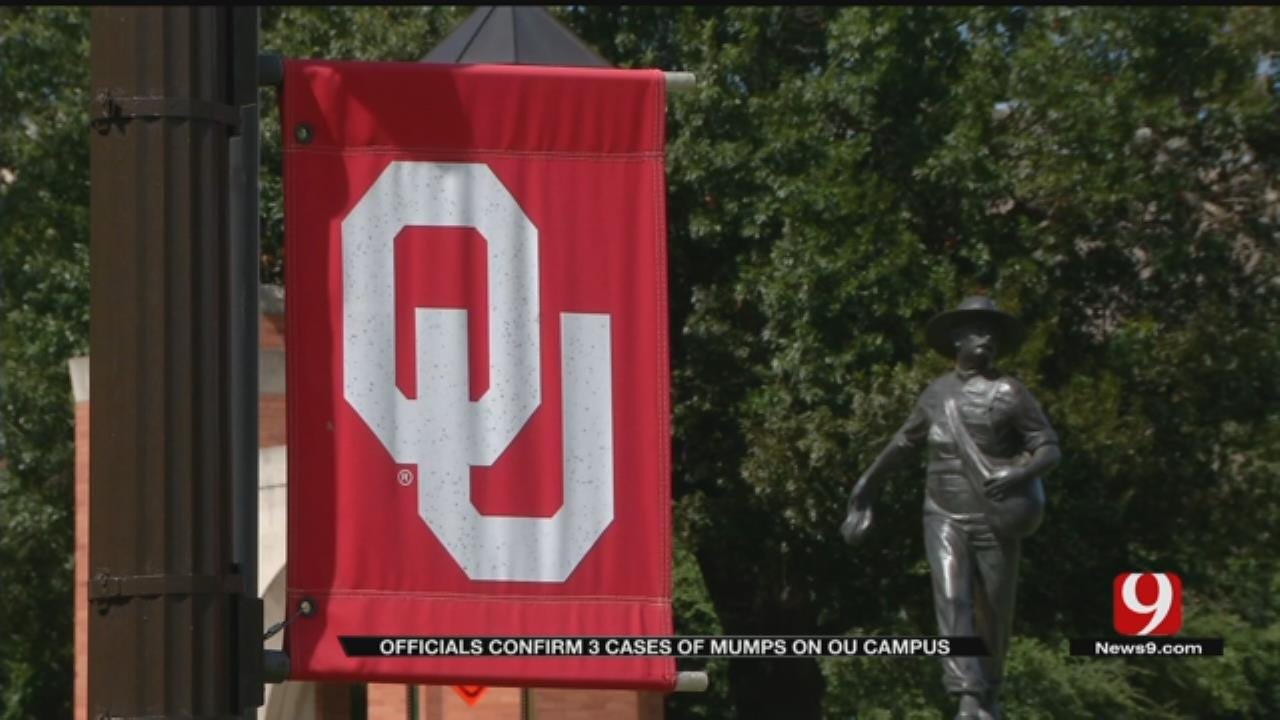OSDH: Mumps Cases Confirmed At OU
<p>At least three cases of mumps have been confirmed at the University of Oklahoma, a spokesman for the state health department said.</p>Tuesday, September 18th 2018, 12:00 pm
At least three cases of mumps have been confirmed at the University of Oklahoma, a spokesman for the state health department said.
The Cleveland County Health Department and OU are investigating the cases.
"The University of Oklahoma has confirmed and treated three students, who were close acquaintances, who tested positive for mumps," said Dr. Craig Rice, medical staff chief of OU Health Services at Goddard Health Center. "The university has taken all appropriate measures and is closely monitoring the situation. OU Health Services collaborates with the Department of Public Health for these kinds of events. The student health center provides booster immunizations for students upon request. No new cases have been identified at this time."
“We’ve been able to rapidly conduct our interviews of the kids that have identified close personal contact, working with University officials and providing them education on what symptoms to look for and what to do,” said Laurence Burnset and epidemiologist with the Oklahoma Department of Health.
According to the state health department, mumps symptoms include swelling on one or both sides of the face, tenderness of the salivary glands (the cheek and jaw area), slight fever, headache, general aches and muscle pain.
The mumps virus is found in the saliva and fluid in the nose and throat and spreads person-to-person by coughing, sneezing or by direct contact with the nose and throat secretions.
Infected individuals can transmit the disease two days before symptoms appear and five days after symptoms begin. Symptoms of the mumps can appear 12 to 25 days after exposure, but usually begin within 16 to 18 days.
Students have also been advised to check their immunization history. Most kids get vaccinated for mumps when they are babies and then again between 4 to 6 years old. But Burnset says students may want to consider another booster shot.
“Over several years your immunity may wane which is why you see outbreaks that may occur in college settings or other group settings where you have a congregation of close personal conduct among a group of individuals,” said Burnset.
More Like This
September 18th, 2018
November 13th, 2024
October 28th, 2024
October 17th, 2024
Top Headlines
December 26th, 2024
December 26th, 2024
December 26th, 2024










